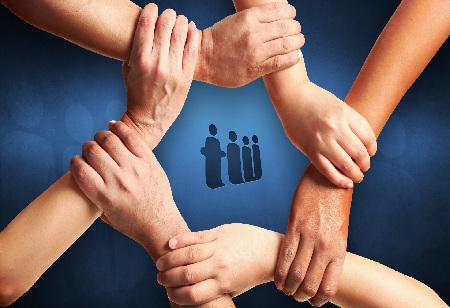
Team building for organizational development as it is because team building enhances the efficiency and effectiveness of teamwork to fulfil organizational performance. The process by which differences among the team members are ironed out through sectional solutions to misunderstanding to enhance the smooth, efficient, and smooth operation of systems to meet predetermined goals and objectives of the organization. Team building is one of the practical development tools to maximize the potential of employees in the organization. It involves collaborative work where employees work together to achieve predetermined goals and objectives. It has enhanced performance and created a strong employee bond to optimize productivity. When a group of diverse individuals together to form a team, challenges such as communication and relationship issues can result. A team's dynamic and complex nature calls for a strong and decisive leader for guidance. It involves taking time to evaluate potential challenges of team development and create ways to solve them.
Lack of Diverse Skills and Interests is the first common challenge. Suppose a team consists of members with similar skills and interests. In this regard, it is critical to consider the project's scope before selecting team members to determine which skills and interests best serve the team. Poor Communication is another challenge in the team-building process. When individuals work as part of a team, communication during all phases of the project is crucial. If a team member treats his role as independent, communication suffers. The project flow suffers if the team leader doesn't communicate with the team members. In this case, the leader got advised to hold team meetings to discuss the project's progress. The team leader should ask the team members about their successes and challenges to gauge the level of communication.
Embrace diversity among working teams
Leadership is a critical factor in the team building process in the organization. Formal groups have managers or supervisors as their leaders. Informal groups usually select their leaders by consensus. In both types of groups, the quality of leadership is highly influential on the quality of the group. The leader must be knowledgeable, patient, and respectful to the group. The leader must give proper guidance to the group and support group efforts in achieving not only the organizational goals but also group goals as well as the individual goals within the group.
Communication is another critical factor in team building in the organization. Efficient communication mechanisms are crucial to developing effective teams. To understand the scope of a goal and agree upon a path to reach that goal, teams must develop an effective method of communication. Indicators of effective team communication include mellow conversation tones, willingness to consider all opinions, desire to enhance communication frequency, effective conflict resolution, and efficient decision making processes. Furthermore, to foster team cohesion, employee satisfaction, and motivation, organizations should implement a formal conflict resolution process in cases where a team cannot effectively resolve conflict internally.
Role Identity is another essential factor to consider in team building. Role identity is the extent to which members can assume different roles throughout the team structure, thus diversifying efforts and developing subject matter experts. The diverse skills and knowledge members bring to a team provide an extensive range of capabilities necessary to achieve a goal. Managers can observe the extent to which a team can recognize the individual potential of each member and identify the role best suited for that member. If not, a team cannot be highly functional and perform well.
Goals and objectives is a key tools in team building process. Work teams need concrete and meaningful goals and objectives. A key difference is that the team has shared goals that ideally motivate all team members to work together. A key development in a team is the process of developing goals and objectives, agreeing on deadlines and scheduling activities to meet the goals and objectives. Clear goals and objectives help each team member understand what to achieve within the team and his requirements to collaborate as projects move along. Trust is an essential element of an effective team. For employees to collaborate, knowing and earning trust from each other is crucial.
Team building is an effective strategy for organizations that want to cultivate an influential corporate culture where employees enjoy coming to work, trust each other, and collaborate easily. Creating a solid team goes beyond hiring competent and kind employees. Once a company hires employees, it's helpful to explore the next step of focusing on how to bring them together and transform them into a productive team. Strong teams are essential in businesses of all sizes. However, many companies focus on making customers happy and often neglect the needs of their employees. They forget their people are their greatest asset, which can be a costly mistake. Instead, businesses should incorporate team-building exercises as an ongoing element of their company culture. Team building activities not only boost employee morale, productivity, and open communication but can dramatically increase the success and profitability of your business.
We use cookies to ensure you get the best experience on our website. Read more...